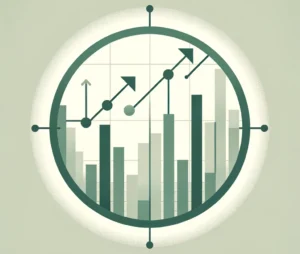Engaging in endless mental gymnastics before making a decision? You’re not alone. Welcome to the club where thinking twice is just for starters and our minds are akin to a browser with too many tabs open. This post is your mental declutter guide, promising insights into how your overthinking can actually be your superpower in the right career paths.
Quick Takeaways:
- Overthinkers excel in roles like Research and Development, Strategic Planning, Risk Management, Software Testing, and UX Design due to their analytical prowess.
- During job interviews, showcase your thoroughness, ask insightful questions, and highlight your adaptability and deep-thinking skills as strengths.
- Implement boundaries, incorporate mindfulness, and adopt decompression techniques to manage overthinking for enhanced job satisfaction and performance.
Is overthinking a hindrance or a strength in the workplace?
Overthinking is often painted with a broad brush as a negative trait, casting shadows of doubt and indecision. However, when channeled correctly, this propensity for deep thought can transform into your secret weapon in the workplace. It’s all about flipping the script from seeing overthinking as an obstacle to recognizing it as a unique lens through which you view challenges and solutions differently.
In many job roles, the ability to meticulously analyze information, foresee potential issues, and devise comprehensive plans is not just an asset—it’s a requirement. For overthinkers, their natural inclination to consider all angles can lead to innovative solutions that others might overlook. It’s the depth of their thought process that can bring unparalleled value to a team, especially in situations that require careful planning and risk management. So, yes, overthinking can indeed be a strength, provided you learn how to harness its potential effectively.
What career paths celebrate overthinkers?
Some career paths don’t just tolerate overthinkers; they absolutely thrive on the meticulous attention to detail and the deep, analytical thinking that overthinkers bring to the table. Here are a few fields where your tendency to overthink can actually be your biggest asset:
-
Research and Development : Whether it’s in scientific fields, market research, or product development, the ability to delve deeply into subjects, spot trends and anomalies others might miss, and persistently question the status quo can lead to breakthrough innovations.
-
Strategic Planning Roles : In strategic consulting or corporate strategy departments, overthinkers’ knack for anticipating a wide range of potential outcomes can prove invaluable in developing long-term strategies that are both resilient and adaptable.
-
Risk Management : This field literally requires you to think of everything that could go wrong—financial modeling, insurance, and cybersecurity are arenas where overthinkers can shine by anticipating and mitigating potential threats before they happen.
-
Software Development and Testing : The devil is in the details, and nobody is better suited to the meticulous work of debugging software than someone who naturally contemplates all possible scenarios. Overthinkers possess the patience and thoroughness needed to excel in these roles.
A specific example where overthinking is especially valued is in User Experience (UX) Design. Here, the ability to empathize deeply with users and obsess over the minutiae of their interaction with products can lead to profoundly intuitive and user-friendly designs.
How can you leverage your overthinking in job interviews?
The job interview is a stage where overthinkers can strategically leverage their tendency to deep think, turning what might be perceived as a weakness into a compelling strength. Follow these tips to make your overthinking work in your favor:
-
Showcase Your Thoroughness : Use your answers to demonstrate your ability to think things through thoroughly. When asked about past projects or challenges, detail the extensive thought process you went through to arrive at solutions, emphasizing how it added value.
-
Ask Insightful Questions : Your natural propensity for analysis can be showcased through the questions you ask. Inquire about the company’s strategies, challenges, and future plans in a way that shows you’ve done your homework and thought deeply about their potential implications.
-
Frame It as a Strength : Be upfront about your tendency to overthink but frame it positively. Discuss how this trait has enabled you to anticipate issues, devise comprehensive solutions, and manage risks effectively in your previous roles.
A unique angle most interviewees overlook is discussing the adaptability of their overthinking. Mention specific instances where your overthinking led to quick pivots or innovative problem-solving under unforeseen circumstances. This demonstrates that not only can you plan meticulously, but you can also adapt and apply your deep-thinking skills on the fly—a highly prized ability in today’s fast-paced work environments.
Remember, the key to leveraging your overthinking in job interviews (and beyond) lies in demonstrating that it’s a strength that you know how to control and apply constructively. Your goal is to convince potential employers that your deep analysis and careful consideration is not a bug, but a feature that sets you apart from other candidates.
And there you have it, a deep dive into how overthinking can actually be a strength in the workplace, the career paths that celebrate this trait, and how to leverage it in job interviews. Your ability to overthink doesn’t have to be a stumbling block—it can be your superpower if you know how to harness it effectively.
Setting Boundaries: The Cornerstone of Mental Well-being
One of the most effective self-management strategies for overthinkers is setting clear boundaries. In the workplace, this means being assertive about your limits, ensuring you’re not overloaded with more than what you can handle efficiently. It’s about saying “No” or “Not right now” without feeling guilty. Embrace the power of prioritizing tasks based on their urgency and importance. This approach not only streamlines your workflow but also mitigates the overwhelming feeling of having too much on your plate.
Example:
Imagine you’re in a role that demands constant innovation, like a software developer or a marketing strategist. Here, it’s crucial to allocate blocks of time for deep work, free from the distractions of meetings and emails. Communicating these boundaries to your team helps protect this time, making sure you can focus intensely on crafting creative solutions without the pressure of immediate responses.
Mindfulness Practices: A Game Changer for Focus
Incorporate mindfulness practices into your daily routine to enhance concentration and reduce anxiety. This might sound like it’s been said a thousand times, but the reason it’s repeated so much is because it works. Techniques such as meditation, deep breathing exercises, or even a few minutes of guided imagery can significantly lower stress levels, making it easier for overthinkers to focus on the task at hand.
A unique twist you could try is “walking meetings”. Instead of sitting in a conference room, suggest taking the meeting outdoors. The combination of physical movement, fresh air, and a change of scenery can stimulate creativity, foster a more relaxed discussion, and decrease the inclination to overthink.
The Importance of Decompression Techniques
Finally, don’t underestimate the importance of decompression techniques to unwind from a day’s work. Overthinkers often find their minds buzzing long after the workday has ended. It’s essential to find ways to disconnect and relax. This is where you can get creative and tailor activities to your personal preferences.
- Exercise: Regular physical activity is a proven stress reliever. Whether it’s yoga, running, or just a brisk walk, find an activity that you enjoy and make it a part of your daily routine.
- Hobbies: Engage in hobbies that absorb your attention completely. It could be anything from painting, playing an instrument, cooking, or gardening. The key is to choose activities that keep you in the “flow” state, away from work-related thoughts.
- Tech Detox: Consider setting specific times in the evening or on weekends when you disconnect from all work communications. This could mean turning off your work phone, staying away from your work email, and avoiding thinking about work tasks. It’s a simple but effective way to ensure work doesn’t encroach on your personal time.
Zooming In on a Specific Tip
One highly specific and somewhat unconventional tip is to practice what I like to call “Scheduled Worry Time”. Set aside 15-20 minutes each day, preferably not too close to bedtime, where you allow yourself to ruminate over things that are on your mind. The trick here is to contain overthinking to this time slot. If you find yourself spiraling at other times of the day, jot the thought down and save it for your Scheduled Worry Time. This technique helps to create a mental boundary, confining overthinking to a set period thus reducing its impact on your overall productivity and emotional state during work hours.
Wrapping it up, remember, it’s all about finding what works best for you and sticking to it. The strategies mentioned above are not one-size-fits-all but starting points to discovering your path to managing overthinking. Implementing boundaries, embracing mindfulness, and adopting decompression techniques can collectively contribute to a healthier work environment and a more satisfying career.







